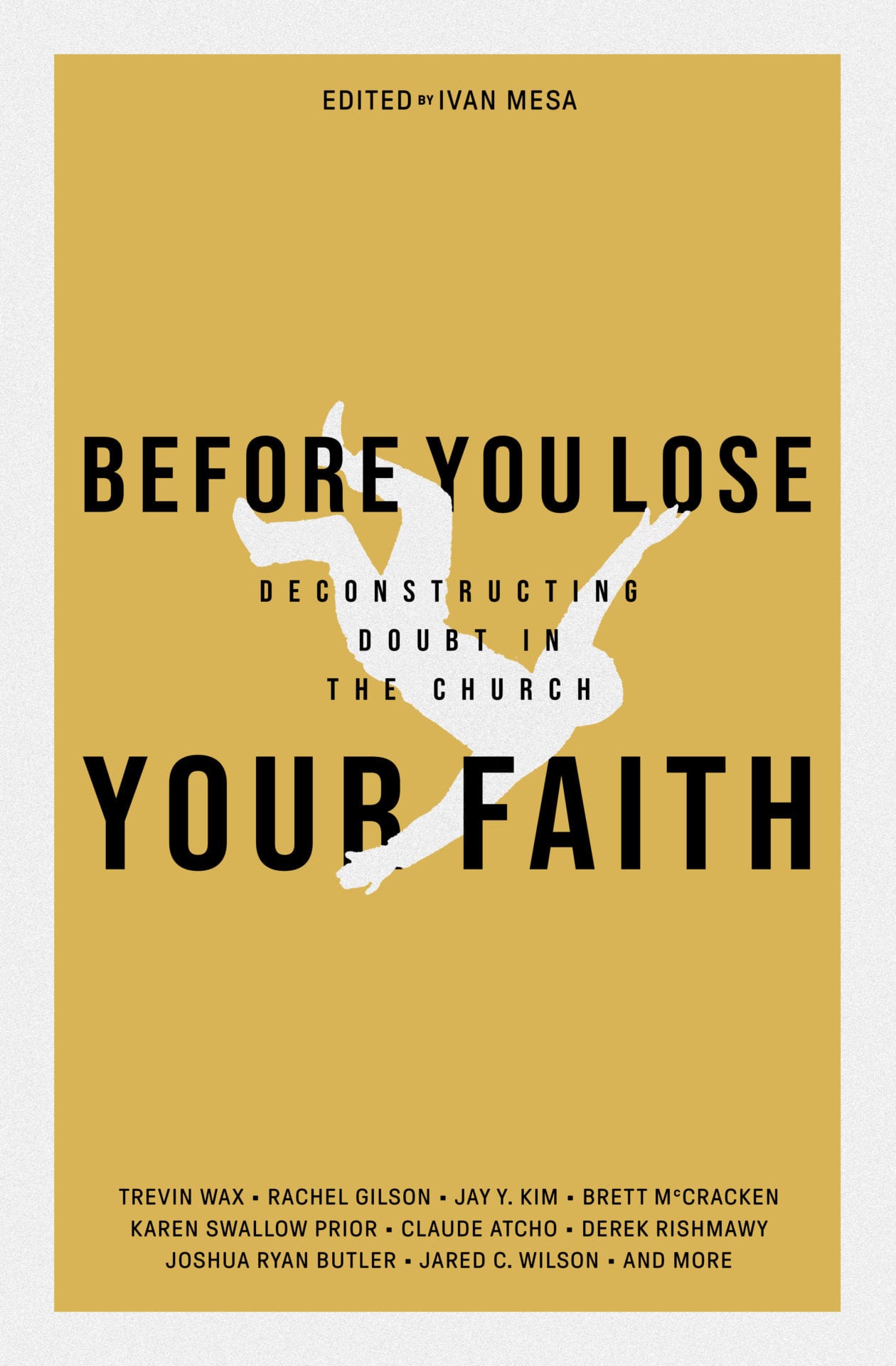“Who do you say I am?”
The question Jesus posed to Peter is the most important we’ll ever answer. Who is Jesus? What do we believe about him?
Several years ago my friend Vince Han and I began a discussion about what we believed about Jesus. We knew we disagreed—we just weren’t sure exactly how we differed. I’m an evangelical. Vince is a Mormon.
In the past 25 years, Vince has served a full-time, two-year proselyting mission and has held many positions of leadership within his local congregations, including time as a bishop. But he didn’t know which specific points of Christ-centered theology differ from the theology of Latter-day Saints and orthodox evangelicalism. And I didn’t know what Mormons believed either.
We began by exchanging book recommendations. Vince suggested I read James E. Talmage’s Jesus the Christ, a book first published in 1913 and one of the handful of approved readings for full-time LDS missionaries. I encouraged him to read Robert Bowman and J. Ed Komoszewski’s Putting Jesus in His Place: The Case for the Deity of Christ.
Recently, we’ve taken up the conversation again and thought it might be worthwhile to share our discussion with the public. We aim merely to clarify what our different faiths believe about Jesus. We follow the method of Stephen Covey, author of The Seven Habits of Highly Effective People and a devout Mormon, who advised, “Seek first to understand, then to be understood.”
We’re not attempting to explain why the other person is wrong (at least not yet). We’re merely opening dialogue so that we may understand “what it might appear to agree we agree on based on the use of similar language with different meanings” (for example, faith in Christ, his work on the cross), “what we appear to disagree on” (for example, the doctrine of the Trinity), and see if that changes the parts we think we agree on (we’ll let the readers decide that point for themselves).
We hope that those who follow our conversation—whether evangelical or Mormon—will come away from this exchange with a better understanding of what each different faith tradition truly believes about Jesus.
(Note: My parts are in bold to make it easier to follow the exchange.)
Joe: Thanks for joining me in this dialogue. I’ll let you go first. Can you give a one- or two-sentence summary of how you’d answer the question, “Who is Jesus?”
Vince: Sure. Jesus is the Son of God, the only perfect man to have walked the earth. He led a divine mission to save the souls of mankind through his atoning sacrifice. Only through him and his grace can man find eternal salvation.
Joe: My wording would be very similar, but I suspect my meaning is not. I believe Jesus is the only-begotten Son of God, conceived by the Holy Spirit, and born of a virgin named Mary; that he lived a perfect life, was crucified, died, and was buried. I believe that on the third day after his burial he rose again and later ascended into heaven and is now seated at the right hand of the Father.
Vince: Okay, I have a question for you. As Jesus is seated at the right hand of the Father (I also agree), do you believe he plays in active role in the daily lives of believers and followers? If so, how so?
Joe: Great question. I believe Jesus plays an active role through what is often called “union with Christ.” Union with Christ is the doctrine that concerns what it means to be “in Christ,” a phrase that occurs 216 times in the letters of Paul and 26 times in the writings of John. Even though his body ascended to heaven, Jesus assures us that he is still with us (Matt. 28:20). Our Savior does not remain outside of us, simply leading the way to a better life, though. As the evangelical theologian Michael Horton says, “We live in him and therefore in and for each other [fellow believers].”
How do you view the active role of Jesus?
Vince: Well said! Like any other important relationship, I believe that the Savior wants us to work on getting ever closer to him, to trust him, and “lose [our] lives for [his] sake” (Luke 9:24). To that end, I believe he intimately is aware of what is going on in our lives, cares about what we care about, and loves us with a perfect love. I believe he is an active Mediator on our behalf with the Father (2 Tim. 2:5).
Joe: That’s an important point about Jesus being our mediator with the Father. Let’s consider that relationship. Rather than two separate and distinct beings, I believe that Jesus is one substance with the Father. Or to put it another way, the Father and the Son are two persons but (along with the Holy Spirit) only one being. How would you clarify their connection?
Vince: This is a well-documented difference in theology between traditional Christianity that has roots from the Nicene Creed and Mormonism. Mormons believe that God the Father and Jesus are distinct personages, each with a perfect, glorified physical body. Yet we believe that they are absolutely one in purpose, therefore their Word is one and the same.
I believe another doctrinal difference is that Mormons believe in accounts from Latter-day scriptures that describe things that Jesus did like appearing in ancient America as well as to Joseph Smith in 1820. Obviously evangelicals do not accept these accounts.
Despite doctrinal differences like these, as one takes the time to examine the messages ascribed to Jesus that come from both the evangelical and Mormon camps, Jesus’s teachings on how we ought to conduct our lives are, for all intents and purposes, the same. What do you think, is that too much of a reach?
Joe: I think you’ve touched on an important question, one often elided over in Mormon-evangelical discussions. To frame it rather simplistically, I thing we could put the question as: Sure we disagree on the Trinity, but does that affect how we conduct our lives or view Jesus’s teachings?
I think it does, because I believe the Trinity is absolutely essential for faithful living. From the evangelical perspective, it is only through the Trinity’s outworking of redemption that we find the Father providing a substitute in love, the Son purchasing the forgiveness of our sins and the imputation of his righteousness, and the Spirit empowering us to do good works. Our good works have been prepared beforehand by the Father, come out of gratitude for the accomplished salvation secured in Christ, and are sustained through the ministry of the Holy Spirit. As a result, how we conduct our lives completely depends on the Trinity.
On a related point, it seems to me that the nature of salvation itself could be understood differently depending on how we think the Son is related to the Father. For instance, the evangelical account is that sonship exists in God and is made available to us by incarnation and atonement. The incarnation and atonement could not have come through any other “Son of God” because the Son has eternally existed within the community of the Trinity. Because you consider God the Father and Jesus to be distinct personages, do you think it is theoretically possible for the Father to have created a different son to carry out the salvific tasks of Jesus?
I don’t think that is possible as God is the same yesterday, today, and forever, and his plan for us is perfect and complete and the role of the Son has been and is forever fixed.
And just to touch on your response to how our views on the doctrine of the Trinity affect how we conduct our lives, I think Mormon sensibility (and practice in regular worship) is weighted heavily towards focusing on what Jesus said as the Savior of the world versus understanding the exact doctrinal nature of the physics of God. The grace of God is no respecter of persons in terms of whether we are poor, rich, black or white, male or female, educated or uneducated, so I feel that all Christians (including Mormons) should share a similar hierarchy of values. Meaning, following the commandment to love God with all our heart, might, and mind is higher in the hierarchy than to be able to recite the historical background and content of the Nicene Creed.
That’s a helpful clarification, Vince. Obviously, our views differ quite radically on that point. No doubt if we kept digging we could find further areas of agreement and disagreement, but we have to stop somewhere. This exchange has been helpful in deepening my understanding of the Mormon views on Jesus, so I appreciate you taking the time to engage in this dialogue.
Thank you for the opportunity, Joe. I’m grateful for our friendship and the fact that faith plays such an important part in our respective lives certainly deepens the kinship I have for you. I see great value in respectful dialogue among people of faith that tackle these types of topics, and I welcome more such conversations in the future.
Free Book by TGC: ‘Before You Lose Your Faith’
 Many young people are walking away from Christianity—for reasons ranging from the church’s stance on sexual morality, to its approach to science and the Bible, to its perceived silence on racial justice.
Many young people are walking away from Christianity—for reasons ranging from the church’s stance on sexual morality, to its approach to science and the Bible, to its perceived silence on racial justice.
TGC’s book Before You Lose Your Faith: Deconstructing Doubt in the Church is an infusion of hope, clarity, and wisdom in an age of mounting cynicism toward Christianity.
For anyone entering college or the workplace and looking for a timely reminder of why Christianity is good news in a skeptical age, make sure to get your FREE ebook Before You Lose Your Faith today!


































